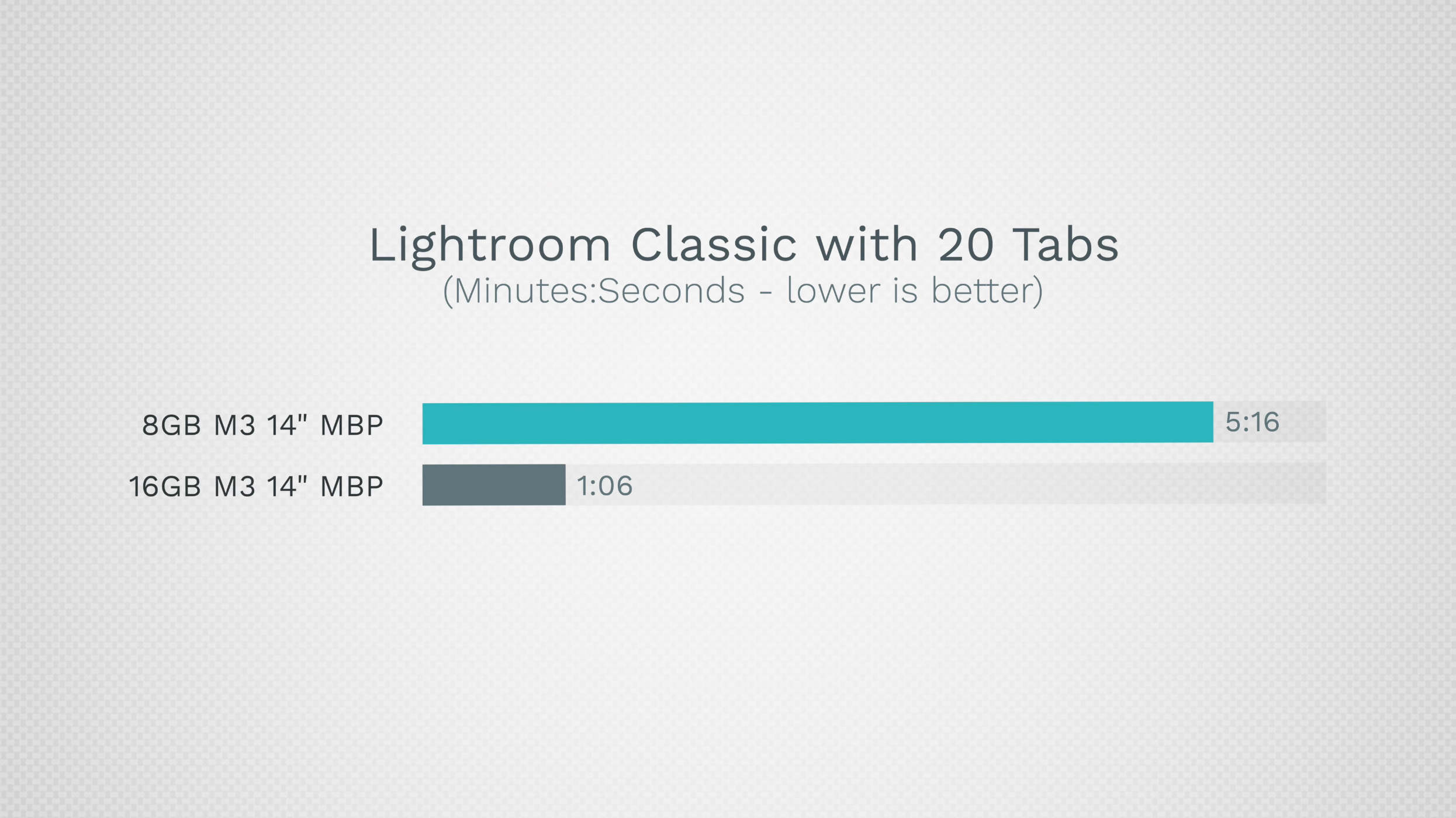There are several issues with this video, and several issues with the release from Apple.
Regarding the video: yes if you do things that use more RAM, the one with more RAM will work better. A better comparison would have been a Widows machine with 16GB of RAM with similar multitasking going on. It is valuable to note that the higher RAM model was just faster out of the box. Finally, likely most of the buyers of the 8GB model would never benefit from 16GB of RAM, they are just not that kind of user.
Regarding Apple: it is about time they pumped up the base RAM and base storage. They appear to have done that with the storage starting at 512GB. For most users who would consider the 8GB version, the 512GB SSD is far more valuable. Apple gets some massive extra markups on storage and memory upgrades. As other have mentioned, as a shareholder, this does benefit me personally. As a user, it sometimes feels a little shifty. They need to find that balance by not getting too far behind the "shifty curve".
As we saw with the 15 pro max, Apple removed the generally inadequate 128GB version, but just forced everyone to pay the $100 tax for the thing that should be standard.
An option that I think Apple should consider for these "8GB versions" is to gather up a bunch of binned 8GB memory chips that they can get for cheap that only work with 4GB enabled and make the base model 12 GB. I would say that a 12GB Mac would be equivalent or more capable than a 16GB Windows machine with a straight face. But I cannot do the same for 8->16.
Regarding the video: yes if you do things that use more RAM, the one with more RAM will work better. A better comparison would have been a Widows machine with 16GB of RAM with similar multitasking going on. It is valuable to note that the higher RAM model was just faster out of the box. Finally, likely most of the buyers of the 8GB model would never benefit from 16GB of RAM, they are just not that kind of user.
Regarding Apple: it is about time they pumped up the base RAM and base storage. They appear to have done that with the storage starting at 512GB. For most users who would consider the 8GB version, the 512GB SSD is far more valuable. Apple gets some massive extra markups on storage and memory upgrades. As other have mentioned, as a shareholder, this does benefit me personally. As a user, it sometimes feels a little shifty. They need to find that balance by not getting too far behind the "shifty curve".
As we saw with the 15 pro max, Apple removed the generally inadequate 128GB version, but just forced everyone to pay the $100 tax for the thing that should be standard.
An option that I think Apple should consider for these "8GB versions" is to gather up a bunch of binned 8GB memory chips that they can get for cheap that only work with 4GB enabled and make the base model 12 GB. I would say that a 12GB Mac would be equivalent or more capable than a 16GB Windows machine with a straight face. But I cannot do the same for 8->16.




